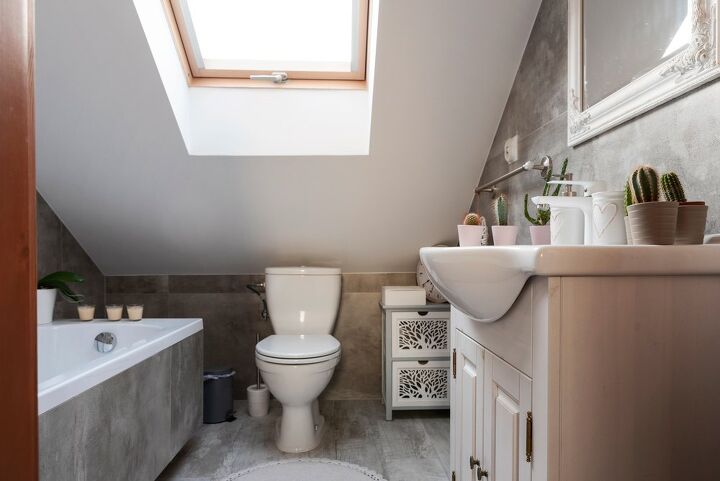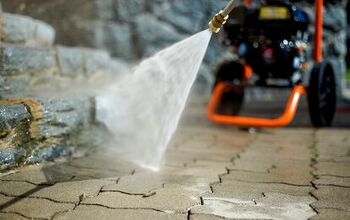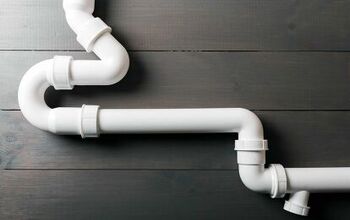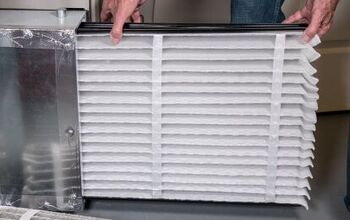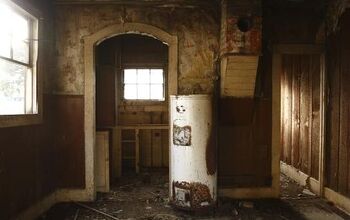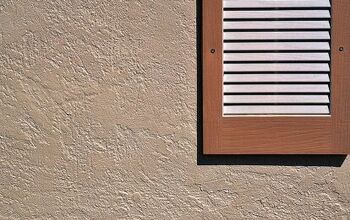Can You Run Water In An Attic? (Find Out Now!)

If there is one system that really, truly matters in your home, it’s plumbing. You can technically live without electricity, but you cannot live without water. That’s why knowing how to run your water in your home matters. Attics are occasionally mentioned as a good place to run water, but is this actually safe?
Running a water pipe is not only doable, but very common. Depending on the area that you live, running water through your attic may be the safest and most reliable way to set up your plumbing system. Ask a plumber for help!
Plumbing is one of those matters that you should read up on before you make decisions regarding its placement. We’re going to explain the full gamut of what this will entail for you.
Do You Need to Hire a Plumber?
Get free, zero-commitment quotes from pro contractors near you.

When Is Running Water In An Attic A Good Idea?
More often than not, running water in an attic is a good idea if you live in a very cold climate where pipes are prone to bursting. PEX pipes are resistant to breakage, but the fittings they have are not. When you’re in a part of the country where cold is the norm, your pipes can burst if they dip below a certain temperature.
Attics are heavily insulated, which means that they give your pipes a lot more protection from the elements. That insulation can protect pipes better than many other forms of pipe layouts. If your plumber suggests running pipes through the attic, it’s best to listen to his/her/their advice.
Should You Insulate Pipes In An Attic?
Pipes are always going to do better if you insulate them. That insulation is what will keep your hot water hot and your cold water cold. Even if they’re not in the attic, it’s a good idea to work with some insulation.
With attic lines, you should keep piping low to the attic floor to help them gain access to the heat from your house. If you have leaks in the attic, you need to make sure to seal the gaps that bring outside air into your attic. Otherwise, you might have a problem. Once that’s done, wrap your plumbing pipes in foam.
When Will Pipes Burst In An Attic?
This all goes back to insulation, and it’s actually a major issue in the South. Pipes burst when your pipes are exposed to freezing temperatures. In parts of the Southern United States, plumbers often cut corners with insulation simply because those areas rarely ever have freezing temperatures.
If you want to make sure that you don’t end up with serious damage to your home, you need to add plenty of insulation to your pipes and give them enough heat to keep them from freezing.
How Do You Prevent Water Damage From Pipes In The Attic?
The condensation that occurs when pipes sweat is a major cause for concern. If left unchecked, that condensation can cause mold and permanent damage to the wooden portions of your house. Thankfully, there is a very easy fix for this: wrapping pipes in foam insulation.
The foam insulation helps prevent condensation from occurring, which makes it easier than ever to cease problems before they begin. As long as you have foam insulation around your piping, you really shouldn’t have a problem with condensation.
Can You Use PVC Pipe In The Attic?
This is not ideal. PVC piping is prone to overheating, and when it does, it will start to leech chemicals into your drinking water. This can lead to cancer later on in life. Many areas are now banning PVC piping in areas that are prone to high heats as a result of the risk it can pose to people in your home.
Can You Use PEX Pipe In Your Attic?
In areas close to colder climates, PEX pipe is the preferred material choice. It will not burst unless you have a cold temperature close to -50 degrees Fahrenheit. It also doesn’t have the tendency to give off chemicals when it’s heated—quite unlike PVC piping.
Can You Use Copper Piping In Your Attic?
In terms of the quality of your piping, you won’t have to worry about copper. It can withstand extreme temperatures on both ends of the spectrum. However, it can corrode faster than PEX pipe. If you are willing to keep a watchful eye for slower, hard to spot leaks, this is usually your best choice.
The only drawback to copper plumbing is that you have to pay an arm and a leg for it. Copper is extremely expensive as a material.
Do You Need to Hire a Plumber?
Get free, zero-commitment quotes from pro contractors near you.

Related Questions
Why do people put water heaters in the attic?
In parts of the country where basements are not actually that common, they have slab foundations. The easiest way to work with a slab foundation is to get a water heater in your attic and send the water downwards. It’s a design mechanism that helps prevent drilling in the foundation and can also help prevent damage from colder weather.
Is copper piping better than PEX tubing?
It depends on the situation. In most cases, PEX tubing will be the best option for people who want to have a quality plumbing system at a more affordable price. It’s easier to work with, easier to insulate, and still won’t burst or leak. Copper is better for systems that you want to have around for hundreds of years. It can, however, corrode and most people don’t want to have to deal with that if they can avoid it.
Is PEX piping toxic?
PEX plumbing still can send chemicals into your water as it breaks down, but it’s still considered to be safe by most builders. It’s a far better option than PVC, which is currently in the process of being removed from homes across the country.People who are worried about BPA and other materials like it may want to take a look at copper plumbing instead. While it’s not perfect, we know exactly how those chemicals that come from copper tubes will affect us. Yep.

Ossiana Tepfenhart is an expert writer, focusing on interior design and general home tips. Writing is her life, and it's what she does best. Her interests include art and real estate investments.
More by Ossiana Tepfenhart



